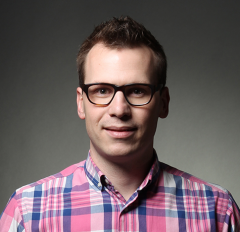On Thursday, April 27, 2017 CFICE presented Winning with Words: How to make your next grant application stand out. The webinar presenters, Stachen Frederick and Lee Rose, walked attendees through key tips and pointers for making grant applications stand out in the pile. Designed for an intermediate audience, the webinar touched on the following agenda items:
- Grant writing from a community-based perspective
- Grant writing from a funder’s perspective
- Tips and pointers shared via Q&A
- Conclusions
If you missed out on the day-of presentation, have no fear. We’ve made it accessible below. You can also check out the resources our presenters shared below!
Resources:
You can access a PDF copy of the webinar slides here.
Check out Lee Rose’s blog post The Future of Philanthropy is Still B.S.
Access the grant writing checklist, and resources website shared by Stachen.
Presenters:
 Stachen Frederick has over 15 years of experience in the field of community and program development internationally and in Canada (Ottawa, Greater Toronto Region including Peel Region). She has done a number of consultancy jobs for organizations such as the Jane and Finch Family and Community Centre- The Spot, the AIDS Committee of Toronto and Gateway for New Canadians. Her unique blend of social work and the arts has led to the development of a number of notable projects including H.I.P to be Global (Health International Perspective to be Global through HIP HOP) and Race to Youth Leadership. She is the Founder of BrAIDS for AIDS. Her community development work has been recognized by Black History Ottawa, the High Commission of Trinidad and Tobago, YMCA Canada, How She Hustles with CBC Toronto. She is currently the Executive Director of Weston Frontlines Centre: a youth centre in a priority neighbourhood in Toronto.
Stachen Frederick has over 15 years of experience in the field of community and program development internationally and in Canada (Ottawa, Greater Toronto Region including Peel Region). She has done a number of consultancy jobs for organizations such as the Jane and Finch Family and Community Centre- The Spot, the AIDS Committee of Toronto and Gateway for New Canadians. Her unique blend of social work and the arts has led to the development of a number of notable projects including H.I.P to be Global (Health International Perspective to be Global through HIP HOP) and Race to Youth Leadership. She is the Founder of BrAIDS for AIDS. Her community development work has been recognized by Black History Ottawa, the High Commission of Trinidad and Tobago, YMCA Canada, How She Hustles with CBC Toronto. She is currently the Executive Director of Weston Frontlines Centre: a youth centre in a priority neighbourhood in Toronto.
 Lee Rose is a curious social innovator with an aptitude for working across systems to drive change. Currently, he leads Community Foundations of Canada’s work in the field of knowledge philanthropy – working across the organization, our network of 191 community foundations, and the broader philanthropic sector to mobilize and activate non-financial capital (i.e. data, research, knowledge, networks) in the pursuit of social change. He is also the lead for the Community Knowledge Exchange, a platform that seeks to catalyze and curate fundamental shifts in how individuals, institutions and communities build and share knowledge in the pursuit of social change. Lee’s connections to the philanthropic and community sector are both pan-Canadian and local. He currently sits on the board of Imagine Canada, and is also the past-president of the Ten Oaks Project, an organization that connects and engages children and youth from LGBTQ+ communities in activities rooted in play. When he’s not catching up on what’s new in the world of community knowledge and social innovation, Lee can usually be found spending time with this three kids, chasing after his runaway dog, or wishing he was tipping a canoe on Lake Temagami.
Lee Rose is a curious social innovator with an aptitude for working across systems to drive change. Currently, he leads Community Foundations of Canada’s work in the field of knowledge philanthropy – working across the organization, our network of 191 community foundations, and the broader philanthropic sector to mobilize and activate non-financial capital (i.e. data, research, knowledge, networks) in the pursuit of social change. He is also the lead for the Community Knowledge Exchange, a platform that seeks to catalyze and curate fundamental shifts in how individuals, institutions and communities build and share knowledge in the pursuit of social change. Lee’s connections to the philanthropic and community sector are both pan-Canadian and local. He currently sits on the board of Imagine Canada, and is also the past-president of the Ten Oaks Project, an organization that connects and engages children and youth from LGBTQ+ communities in activities rooted in play. When he’s not catching up on what’s new in the world of community knowledge and social innovation, Lee can usually be found spending time with this three kids, chasing after his runaway dog, or wishing he was tipping a canoe on Lake Temagami.
 Katalin Koller has over eight years’ experience as a project manager in First Nations education, a sector where securing external funding, managing intricate partnerships, and creatively composing project ideas is not only a matter of success, but also of survival. Keenly interested in social and environmental justice, Katalin embraces a holistic perspective shaped by her time working at the Province of New Brunswick and more recently, as a collaborator to Mi’kmaq and Wolastoqey Nations in not-for-profit community development. After coming to Ottawa in 2013 and spurred by her passion for decolonizing education, she joined the Community First: Impacts of Community Engagement (CFICE) project as the Research Associate for the phase 2 working group Aligning Institutions for Community Impact (AICI). AICI’s mandate is to support institutional culture change in post-secondary education toward enhanced community-campus partnerships in the co-production of knowledge. Katalin is a PhD candidate in geography with a specialization in political economy at Carleton University, studying the geographies of cross-cultural reconciliation enacted in spaces of solidarity.
Katalin Koller has over eight years’ experience as a project manager in First Nations education, a sector where securing external funding, managing intricate partnerships, and creatively composing project ideas is not only a matter of success, but also of survival. Keenly interested in social and environmental justice, Katalin embraces a holistic perspective shaped by her time working at the Province of New Brunswick and more recently, as a collaborator to Mi’kmaq and Wolastoqey Nations in not-for-profit community development. After coming to Ottawa in 2013 and spurred by her passion for decolonizing education, she joined the Community First: Impacts of Community Engagement (CFICE) project as the Research Associate for the phase 2 working group Aligning Institutions for Community Impact (AICI). AICI’s mandate is to support institutional culture change in post-secondary education toward enhanced community-campus partnerships in the co-production of knowledge. Katalin is a PhD candidate in geography with a specialization in political economy at Carleton University, studying the geographies of cross-cultural reconciliation enacted in spaces of solidarity.